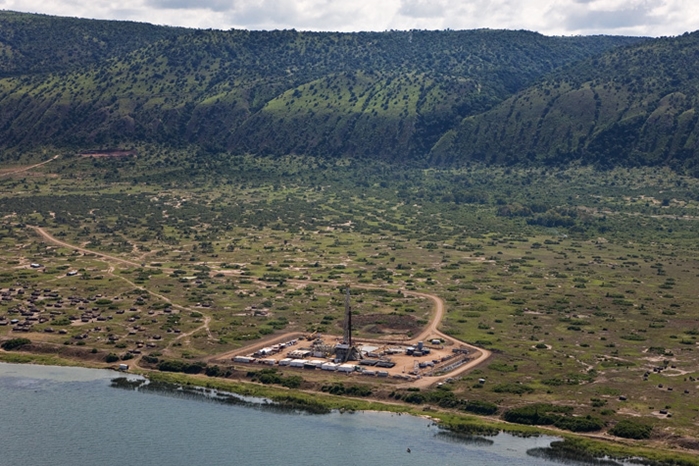
Tullow Oil produced 77,700 barrels per day in the first half of the year, while the realised oil price was $52 per barrel.
Revenues were around $700 million, of which hedging receipts made up $131mn.
Tullow said it had cut its oil price assumptions and as a result it expected impairment and exploration write offs of $1.4-1.7 billion before tax. The company will release its half-year results on September 9.
Production for the rest of the year is expected to be in the range of 71,000 to 78,000 bpd. Gross production from the Jubilee field, in Ghana, was 84,700 bpd, of which 30,000 bpd was net to Tullow. The TEN project averaged 50,900 bpd, net 24,000 bpd to Tullow.
Another well at TEN, Ntomme-9, is due onstream in August.
Non-operated production was 23,700 bpd.
Ghanaian output is expected to fall to 51,600 bpd over the full year, from 54,000 bpd in the first half.
“Since becoming CEO on 1 July, I have been impressed by the quality of Tullow’s people and the potential of our assets and I am confident that we can build Tullow into a competitive and successful business once again,” said Tullow’s new CEO Rahul Dhir.
“Despite the challenging external environment in the first half of the year, Tullow has performed well; delivering production in line with forecast, agreeing the sale of the Ugandan assets and re-shaping the Group’s structure and cost base.”
Dhir went on to say that the focus for the second half of the year would be on delivering “safe and reliable production from West Africa, reducing debt and building a cost effective and efficient organisation that can compete in a low oil price environment”.
Uganda
Tullow shareholders voted on July 15 to endorse a proposed sale of the company’s Ugandan interests to Total. The French company will pay $500mn in cash on completion, with another $75mn after reaching final investment decision (FID).
The deal is expected to complete before the end of the year. Such sales have encountered problems in the past as a result of the local government.
Tullow said the deal was subject to a binding tax agreement and approval for the transfer. This requires approval from the government and the Uganda Revenue Authority.
Recommended for you

